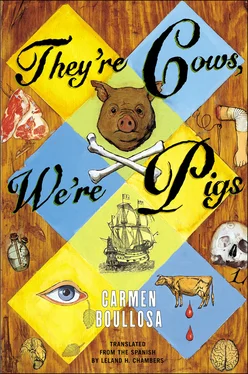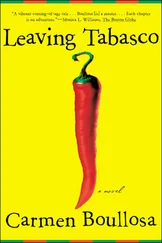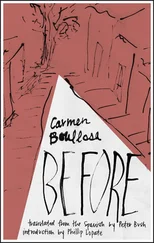Rafael Marques moved far enough away in the darkness to be able to go on without danger in the full morning sunlight, by then out of our sight. During the time we had been drinking and eating — which we were in sore need of doing, having had very scant nourishment during the respite before the assault — he was thinking, calculating, making plans, and convincing himself that, we being so many but also so drunk and now also without our allies the Bravos, with whom we had agreed to share the booty when it was collected together, he would be able to gain more from our assault if he jumped ship and revealed to the Spaniards what to do to defeat us, since, we being so intoxicated and also unaccompanied by the Indians, with him or without him we were going to be defeated; and he, fearing to find himself amongst the vanquished, took flight under cover of his identity as Queen Metecona of Blue Island — not realizing that it was the swamps on the Maracaibo side that had loosed the humors impairing his good sense, if it is true that Rafael Marques had ever had any.

When I began to relate my story, it was established that I would have the eyes and ears of Smeeks, Le Trépaneur, or Exquemeling, whichever name I or the others would use to designate me. In the order of the story, first I was Smeeks, then came the ceremony (which I ought to describe in more detail, relating, for example, how the one who is becoming a Brother drinks the blood of the other Brothers and in turn lets his own blood so that they may drink of it, all mixed with wine; but, in order the more quickly to reach the end of my story, I did not wish to pause over every least detail); but I believe that from the beginning I have been Exquemeling, because he it is who, though of no importance in himself, usually narrates my story, so as not to call attention to the person of Smeeks.
The moment has come when eyes and ears do not suffice to continue. I now have need of Smeeks’s heart, Le Trépaneur’s heart, Exquemeling’s heart. Because what would these eyes see in that attack by the cruel L’Olonnais on the ship that came after the heads of his crew, a ship sent out by the governor in Havana, fully equipped and with orders to hunt L’Olonnais down and kill all his men, supplied also with an executioner to carry out the beheadings, commissioned as such by the governor himself? They would see so much blood as would cloud over the narration and they would lose their way, like the Spaniards before us when, after the above-mentioned attack on Maracaibo, we went after the neighboring town of Gibraltar and they resisted us with so extravagant an expense of gunpowder as to make them blind amid the billows of smoke given off by the gunfire, losing sight of us, strangely enough, and losing control totally; while we ourselves kept from losing our heads — there was good reason not to, one had to be cold-blooded, this was not a party or a drunken binge but war — and we were able to take them by surprise. These eyes would see so much blood: that of the whole crew including the black executioner, who weeping implored them not to kill him, claiming that he was the captain of that ship and would give L’Olonnais as much information as he wanted; to which L’Olonnais agreed, hearing him out until the man had nothing more to give him, and then, without softening, made his blood to run. Only one man remained alive (and he did not even ask for pity) to serve as L’Olonnais’s messenger to the governor, though he was nearly incapable of carrying out his charge because the sight of so many bloody deaths had unhinged him, and in his disordered mind the only words there seemed room for were those of the black executioner, the strong and until then imperturbable man who from his great height had bawled out, “Have pity!” something that he himself had never shown toward those he had put to death, and who knows how many of them there were; by reason of which the poor man could not manage to say, I am the messenger to the governor , after our men had left him in a canoe on the wharf at Havana, but instead he shrieked: Have pity on me, don’t kill me, I am the captain, I will answer whatever you ask, have pity …, trembling grotesquely all the while, exactly as the huge black executioner had done, he of the firm, steady hand. Nor would he have handed over the letter had it not been that someone recognized him and told them who he was (or who he used to be before going mad), and this same person, in describing the character of the madman, explained that the now insane man had been aboard the ship sent in pursuit of L’Olonnais, as all the while the messenger, repeating the same phrase with such persistent vigor that no one understood why he did not calm down, why his voice remained so clamorous, was holding out his arms whose hands clasped between them the pirate’s letter that said, I will never give quarter to the Spaniard. I have the firm expectation of doing the same thing to your person as was done to all those aboard your ship, by which you sought to do the same to me and my companions . They carried the messenger into the presence of the governor so he could receive L’Olonnais’s letter into his own hands; whereupon the governor, taken by a fear so uncontrollable that he was unable to hold back, shot the unfortunate man: the one who once upon a time had embarked on the mission ordered by the governor, then became a survivor, then lost his mind, then shrieked tirelessly like the executioner, and suddenly was finished off; which put the governor into a double predicament: that of knowing himself threatened by the cruel, much-feared L’Olonnais, and that of being the murderer of an innocent man. So that, in order to escape one of the two situations, the trigger had scarcely been pressed when the governor began to call out for them to find the man responsible for the murder he himself had mistakenly committed, pretending he had not done it: an act that was welcomed by his followers there because it looked bad to them that the governor, being so frightened, had done what no one would ever admit he had done, in an attack of panic, under the stupid belief that the vicious pirate’s threat would disappear with the death of the unfortunate messenger.
So they cast around for the one who had shot the messenger and they found a young man who had been passing by the spot, and even though he was not carrying a firearm they were pleased to think him guilty. His mother (Havana is not Tortuga, and young people have parents there) begged for clemency, overcome by tears, unable to understand what was going on. As there was no executioner now, nor anyone to fill in, he was sentenced to the gallows, in the belief that if there was no one capable of lopping off his head, anyone, they reasoned, could throw a rope around his neck; yet they were forced to delay the execution for some hours because no one managed to tie the knot successfully. Twice the youth was dashed to the ground without losing his life, while his mother roused herself from her bewildered state and began to figure out what to do, first informing the governor that the hangman’s knot had not done its work, upon which the governor pardoned the young man, setting it down in writing that if the All-Powerful and Eternal God had permitted the youth twice to escape death, the governor was not one to oppose the divine pardon. Still, the truth was that he, as a Spaniard, did not know how much one is soothed by shedding blood, nor how well this conquers all remorse and reestablishes one’s lost peace of mind; he being full of remorse and having no peace because he had killed the messenger and was about to kill an innocent person, but with such bad luck that by the time his letter reached the scaffold the hangman’s knot had now been made and the youth was already dead. However, this young man was not the one lamented so pitiably by the mother but another, she having managed to bribe several officials and substitute one of her slaves for her son, a fact never realized by the governor in his remorse because there were too many sons in that house to be able to tell one from another, though, as is well known, if a mother undertakes to do so she can recognize any son she may have.
Читать дальше













